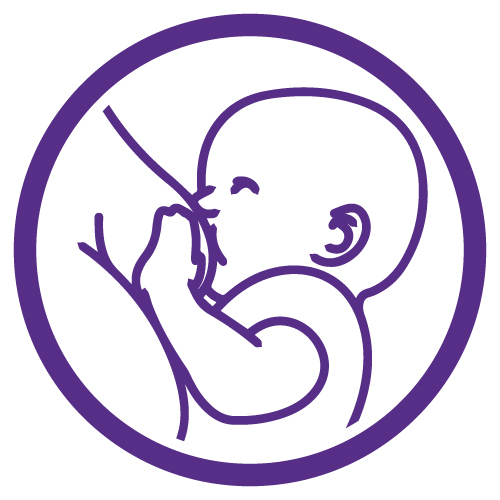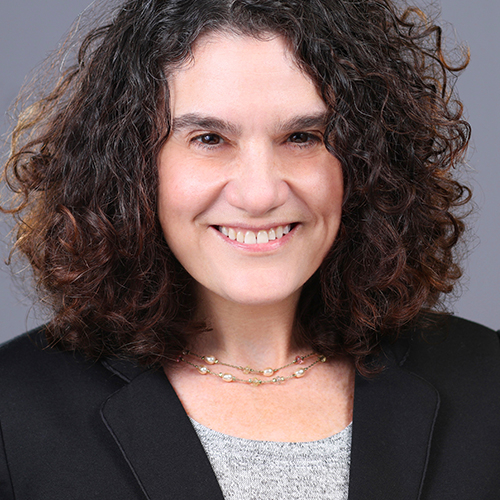
Clinical Support of Infant Sucking Skills Lecture Pack
Being able to assess infant sucking skills and provide support in the case of sucking dysfunction, is a fundamental skill for lactation professionals. This package provides a deep dive into the knowledge and skills needed to provide optimal care to breast/chestfeeding families. Join our expert speakers to learn more about oral assessment and function, supporting early oral feeding experiences in the NICU, assessment of tongue-tie, sucking disorders in children with neurological, muscular, genetic or anatomical diseases, sensory processing and breast/chestfeeding and assessment and care of babies with suckling dysfunction.


Gretchen Becker Crabb is an Occupational Therapist, Licensed Professional Counselor, and Endorsed Infant Mental Health Therapist. She is also a Certified Lactation Counselor, La Leche League Leader, and Brazleton Newborn Observation (NBO) trainer.
Gretchen’s passion is rooted in fostering lifelong relationships and connection through co-regulation in pregnancy and beyond. Her unique approach to lactation support and therapy is rooted in culturally attuned sensory, somatic, and trauma-informed mental health techniques.
Gretchen owns and operates a private practice in Madison, Wisconsin. For 21 years, she has provided developmental, trauma, feeding, and attachment support for tiny humans and their caregivers in birth to three, preschool, private practice, and peer group settings. Gretchen is an international speaker, reflective supervisor, and infant mental health consultant. In these roles, she offers compassionate, experiential, and reflective holding spaces for professionals. She is a proud United States Air Force spouse and mother of three boys.
Topic: Infant Mental Health: What Does It Look Like in Practice? - [View Abstract]
Topic: Scent-Sational Connections: The Role of Olfaction in Development - [View Abstract]
Topic: Sensory Processing and Breast/Bodyfeeding: Using Co-Regulation to Support the Feeding Relationship - [View Abstract]
Topic: Vestibular Processing: Using the Sixth Sense to Support Lactation and Parent/Infant Relationships - [View Abstract]
1. Explain how the 8 senses influence the dynamics of feeding and infant/caregiver relationships.
2. List signs of sensory challenged feedings.
3. Describe basic sensory supportive strategies for caregivers and infants.
Well-organized sensory systems provide the foundation for relational feeding. Sensory interactions communicate the story of the dyad, a window into strengths and challenges. Encouraging families to attune to their own sensory preferences and that of their infant can significantly influence the dynamics of the body/breastfeeding relationship. This presentation will explore the basics of sensory processing as it relates to provider, parent, and infant co-regulation in the context of body/breastfeeding and lactation support. We will explore basic neurology and cultural influences of the 8 senses though dyadic examples. Ways in which subtle signs of sensory disorganization and sensory processing disorder present in body/breastfeeding relationships will also be reviewed. Participants will learn practical strength-based sensory strategies to support families in the beginning stages of life, feeding, and beyond.


Jacqueline Kincer is the founder of Holistic Lactation where she runs a busy practice, manufacturers herbal supplements for lactation, and supports breastfeeding families worldwide. She's also the host of the podcast Breastfeeding Talk: Milk. Mindset. Motherhood. and creator of the online breastfeeding community, The Nurture Collective. Jacqueline's passion has been to create functional breastfeeding outcomes and expand access to lactation knowledge across the globe.
Topic: Inside the Infant Mouth: Oral Assessment & Function - [View Abstract]
Topic: Tongue Tied Untied: Creating Functional Breastfeeding Outcomes - [View Abstract]
1. Explain the structures of the infant’s orofacial complex that are central to breastfeeding.
2. Describe how the orofacial complex works to facilitate breastfeeding.
3. Differentiate normal sucking from dysfunctional sucking.
In order to identify sucking dysfunction, it's important to first know what normal looks like. Being able to do a thorough oral assessment of an infant is a crucial skill for IBCLCs. The focus of this presentation is to discuss what to look for when performing an oral exam, as well as how to assess oral motor function as it relates to infant sucking skills. Knowing how the anatomy affects an infant's oral-motor skills is crucial to determining the cause of breast/chestfeeding problems and suggesting proper treatment.


Lina Mazzoni is a Lactation Consultant, IBCLC with a Bachelors Degree in Speech and Language Therapy. Since 2013 she has been working primarily with children and specialized in the treatment of sucking, swallowing and feeding disorders. In 2019 she became a Lactation Consultant to be able to work equivalent with the children and the mother. As a working mom she worked part time as a Lactation Consultant in a hospital in Hamburg, started her own privat practice in 2019 and since october 2021 she works exclusively in her private practice as a lactation consultant and SLT. She also works as an Instructor in lactation education and further education regarding feeding developement and disorders . Lina has two children and lives with them and her husband in Hamburg, Germany.
Topic: Sucking Disorders in Children with Neurological, Muscular, Genetic or Anatomical Diseases - [View Abstract]
1. Name at least three different underlying conditions that can cause sucking dysfunction.
2. Describe the clinical signs and symptoms that may indicate an underlying condition as a cause of sucking dysfunction.
3. Explain the clinical lactation support needed in cases of sucking dysfunction related to an underlying condition and when to refer to another provider.
For an infant, breast/chestfeeding and sucking is the normal form of feeding. If an infant is born with an underlying neurological, muscular, genetic or anatomical disease or if neurological changes occur due to complications, this form of feeding may be disturbed. Since the interaction of breathing-sucking-swallowing requires the coordination of over 60 muscles and several cranial nerves, even small changes in physiology can throw the system out of balance. Congenital-Heart-Disease, Down Syndrome or a disorder of the central nervous system due to pre- or postnatal trauma, infection or structural defect differ in their symptoms, but what they all have in common is that sucking and oral intake of food can be impaired. When working with infants or lactating parents, children with sucking disorders due to an underlying disease may also be present. It is important to know which underlying diseases can have an impact on sucking and how the children and families can be supported to enable or improve oral feeding and to be able to assess which interdisciplinary team would be useful to ensure the best possible care.


Ramya Kumar is an ASHA certified Speech Language Pathologist specializing in infant and pediatric feeding disorders while practicing in a Level 3 NICU and outpatient settings in Phoenix, AZ. She is a Board Certified Specialist in Swallowing & Swallowing Disorders, Certified Neonatal Therapist, International Board Certified Lactation Consultant, Neonatal Touch & Massage Certified Therapist & has completed the Trauma Informed Professional Certificate. Ramya is an internationally sought out speaker & clinical mentor on the topic of neuroprotective care in the NICU, Pediatric Feeding Disorders and Tethered Oral Tissues. Ramya is passionate about helping families create mealtime success through a whole-body lens. More recently, Ramya has been serving as a NICU Developmental Coordinator championing changes in unit culture, system-wide policy development and supporting transition of NICU families to community based programs. She has also co-founded Arizona NICU Follow-Up Specialists, a community resource supporting NICU grads and their families as they transition from hospital to home.
Topic: Trauma Informed and Family Centered Care! Keeping the Family Unit at the Center of a Tongue-Tie Treatment Model - [View Abstract]
1. Describe the subsystems that are necessary for efficient breast and bottle feeding in the hospitalized infant.
2. List medical devices and procedures that impact oral feeding development in the NICU.
3. Describe ways that staff can support feeding skill development in the NICU.
One of the most complex and challenging tasks required of an infant in the neonatal ICU (NICU) is oral feeding. Oral feeding progression is also one of the most critical pieces of the discharge puzzle. Depending on their medical and nutritional needs, these infants often experience procedures like intubation and/or placement of medically necessary interfaces like nasal prongs, CPAP masks, orogastric and nasogastric feeding tubes. Intra-oral presence of tubes paired with the sensory motor implications of tape used to secure these interfaces and the overall challenges of a developing infant in the ex-utero environment places these infants at risk for oral feeding difficulties downstream. This presentation will provide participants with ways to support the developing oral structures and subsequent oral motor and oral sensory components of a neonate in an attempt to support breast and bottle feeding progression in the NICU.


Sarah is a Registered General Nurse, Health Visitor, International Board Certified Lactation Consultant and Tongue-tie Practitioner with a busy private practice based in Cambridgeshire, UK. Sarah worked as a volunteer breastfeeding counsellor for the Association of Breastfeeding Mothers for several years and continues to run a weekly breastfeeding support group as a volunteer. Sarah is a founder member and former Chair of The Association of Tongue-tie Practitioners in the UK and is the author of the book, ‘Why Tongue-tie Matters’. She offers an online course in tongue-tie and infant feeding in association with Babyem and provides education on infant feeding and tongue-tie for healthcare professionals and breastfeeding supporters in the public, private and volunteer sectors.
Topic: Is This a Tongue-Tie: How Do We Decide? - [View Abstract]
Topic: The Elephant In The Room - Bleeding Post Tongue-Tie Division - [View Abstract]
1. Describe the role of the tongue in infant feeding.
2. Describe the assessment tools available for assessing tongue-tie in infants with feeding difficulties.
3. Explain what differentiates a normal lingual frenulum from a restricted lingual frenulum.
4. Explain what other factors may negatively impact on tongue function.
This presentation will discuss the difficulties that surround defining and assessing for tongue-tie. It will explore what we know about the role of the tongue in infant feeding by reviewing evidence from ultrasound studies and other research on latch and examining what this tells us about the normal functioning of the tongue. Various available assessment tools will be described along with how these may assist in differentiating between a normal and abnormal lingual frenulum. Also discussed will be other causes of tongue restriction and how to differentiate these from an abnormal lingual frenulum.


Leslie has been providing lactation support in Central New Jersey for over 18 years - as a La Leche League (LLL) leader since 2002, an IBCLC at Mercer County WIC from 2014 to 2016, and as a private practice IBCLC since 2011.
Leslie grew up in New York and New Jersey. She graduated from Cook College/Rutgers with a BS in Biochemistry, and from Rutgers University/UMDNJ with a PhD in Biochemistry and Molecular Biology. Leslie's difficulties with early breastfeeding, the help she received from LLL, and challenges with returning to work laid the foundation for her understanding of the importance of skilled and compassionate lactation and infant feeding support.
Topic: Untangling the Big Picture of Tongue-Tie Assessment - [View Abstract]
1.Explain the process for assessing infant oral and body anatomy and motions, and how they
may impact feeding.
2. Describe the skills needed to aid dysfunction (at the breast, while bottle feeding, oral exercises).
3. Describe the ongoing assessments that are needed through the course of care to allow for adjustments in the care plan.
IBCLCs assess chest/breast and bottle feeding skills and infant’s oral and body anatomy, and the motions that contribute to, or inhibit, the process of feeding as well as post-feeding comfort (digestion and elimination for infant, breast comfort for parent). When infants present with feeding dysfunction, the root of the issue could be from a variety of sources - effects of in utero positioning, prematurity, effects of birth interventions, tight frenulum (ties), asymmetric/tense muscles/fascia, neurological/ reflexive issues, low/high muscular tone, or suckling discoordination, suck-swallow-breathe discoordination, laryngomalacia, compensations for low supply, cleft lip/palate, and more. IBCLCs help families navigate the differential assessment of feeding dysfunction, and at the same time support the family’s feeding and milk supply choices.
This presentation will examine the role of the IBCLC when suckling dysfunction is occurring - for example aiding with latch and bottle feeding, oral/body exercises, referrals for oral evaluations and/or bodywork, or help with frenotomy pre/post work if needed. IBCLCs adjust the care plan as the infant’s feeding skills and parents’ goals grow and change. Developing the skills to aid oral function, and coordinate with specialized practitioners to aid this process, is crucial in order to determine the best course of clinical care, meet the families needs, and allow for the best possible outcome.
Accreditation
CERPs - Continuing Education Recognition Points
Applicable to IBCLC Lactation Consultants, Certified Lactation Consultants (CLCs), CBEs, CLE, Doulas & Birth Educators. GOLD Conferences has been designated as a Long Term Provider of CERPs by the IBLCE--Approval #CLT114-07. This program is approved for 6 L-CERPs.
CMEs - Continuing Medical Education Credits for Physicians & Nurses
The AAFP has reviewed this Activity and deemed it acceptable for AAFP credit. Term of approval is from 04/02/2024 to 04/02/2025. Physicians should claim only the credit commensurate with the extent of their participation in the activity. This activity is approved for 6 AAFP Elective CME credits.
Dietetic CPEUs - Continuing Professional Education Units
Applicable to Dieticians & Nutritionists, this program is approved for 6 Dietetic CPEUs by the Commission on Dietetic Registration - the credentialing agency for the Academy of Nutrition and Dietetics.
Midwifery CEUs - MEAC Contact Hours
This program is accredited through the Midwifery Education & Accreditation Council (MEAC) and is approved for 6 Contact Hours, the equivalent of 0.6 MEAC CEUs. Please note that 0.1 MEAC Midwifery CEU is equivalent to 1.0 NARM CEUs.
Nurse Contact Hours
This nursing continuing professional development activity was approved by the American Nurses Association Massachusetts, an accredited approver by the American Nurses Credentialing Center’s Commission on Accreditation for 6 Nurse Contact Hours. Nurse Contact Hours are valid until 04/02/2026.
- View this presentation in its entirety, under your individual GOLD login info
- Successfully complete a post-test (3 out of 3 questions correctly answered)
- Fill out the Evaluation Survey
If you have already participated in this program, you are not eligible to receive additional credits for viewing it again. Please send us an email to [email protected] if you have any questions.
Additional Details
Viewing Time: 4 Weeks
Tags / Categories
(IBCLC) Clinical Skills, (IBCLC) Development and Nutrition, (IBCLC) Education and Communication, (IBCLC) Equipment and Technology, (IBCLC) Infant, (IBCLC) Infant, (IBCLC) Maternal, (IBCLC) Pathology, (IBCLC) Psychology, Sociology, and Anthropology, Breastfeeding & Health, Breastfeeding Strategies for the Preterm Infant, Infant Anatomy & Physiology, Maternal & Infant Assessment, Supporting Sucking Skills, Tongue & Lip Tie Assessment
How much time do I have to view the presentations?
- The viewing time will be specified for each product. When you purchase multiple items in your cart, the viewing time becomes CUMULATIVE. Ex. Lecture 1= 2 weeks and Lecture Pack 2 = 4 Weeks, you will have a total of 6 weeks viewing time for ALL the presentations made in that purchase.
- Time for viewing the talks begins once you purchase the product. For Live Webinars & Symposiums, the viewing period begins from when the live event takes place. Presentations can be accessed 24/7 and can be viewed as many times as you like during the viewing period.
What are bundled lectures?
- Presentations may be available individually or via a bundled package. Bundled lectures are a set of lectures that have been put together based on a specific category or topic. Some lectures will be available in both individual and lecture form, whereas others will be available only via a bundled lecture pack.
Will there be Handouts?
- YES! Each lecture comes with a PDF handout provided by the Speaker.
Some lectures include a Q&A, what does that mean?
- During our online conferences, presentations that occur live are also followed by a short 15 minute Question & Answer Session. The Speaker addresses questions that were posted by Delegates during the presentation. We include the recording of these Q&A Sessions as a bonus for you.
How can I receive a Certificate?
- If this presentation offers a certificate, once you are done viewing the lecture or the lectures within a bundle, submit your attendance record in order to be able to download your certificate. You'll be able to see which credits are offered for the lecture by hovering over the "Credits Available" link within the "Speakers & Topics" tab.
Professionals that selected this package also viewed

|
|

|









